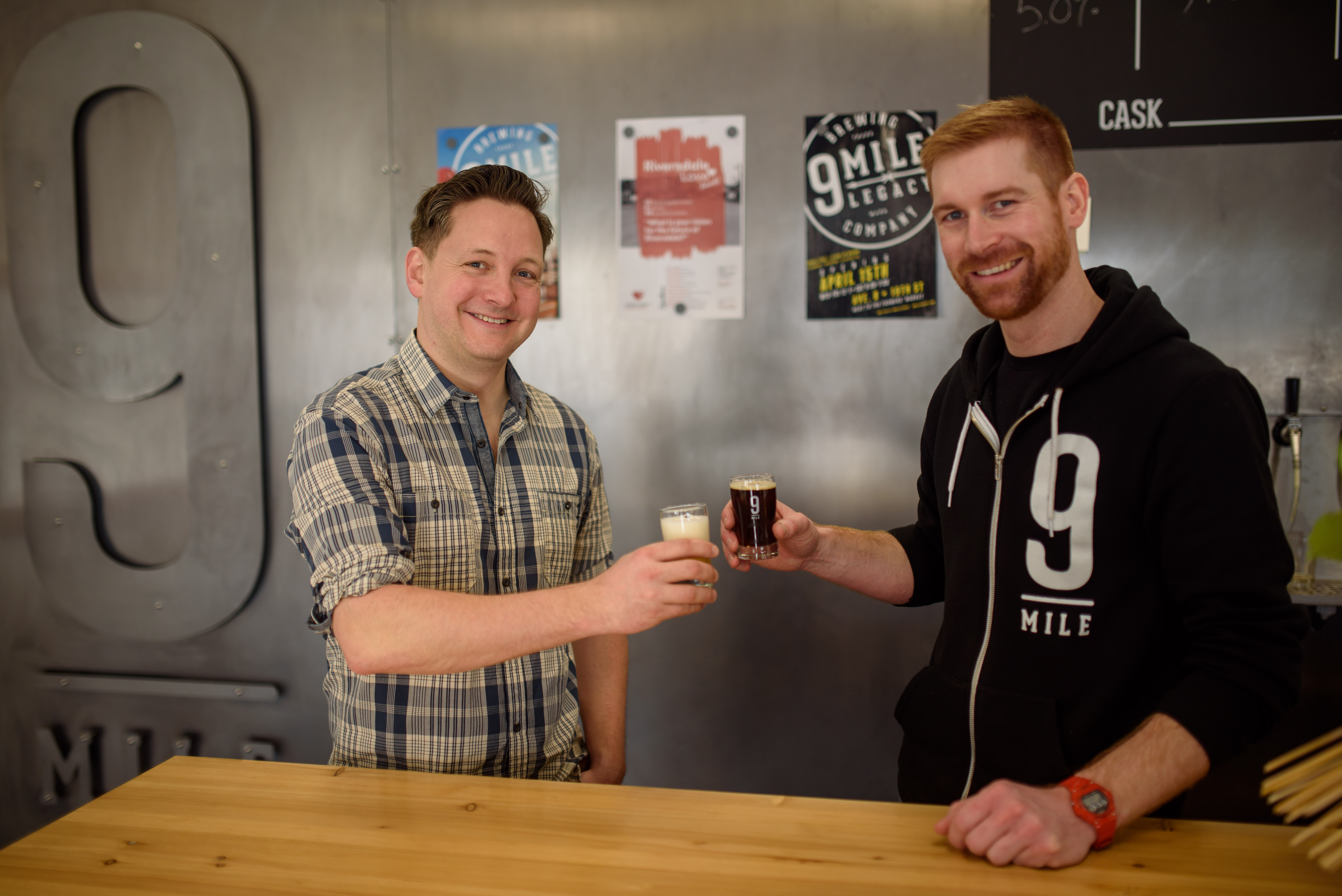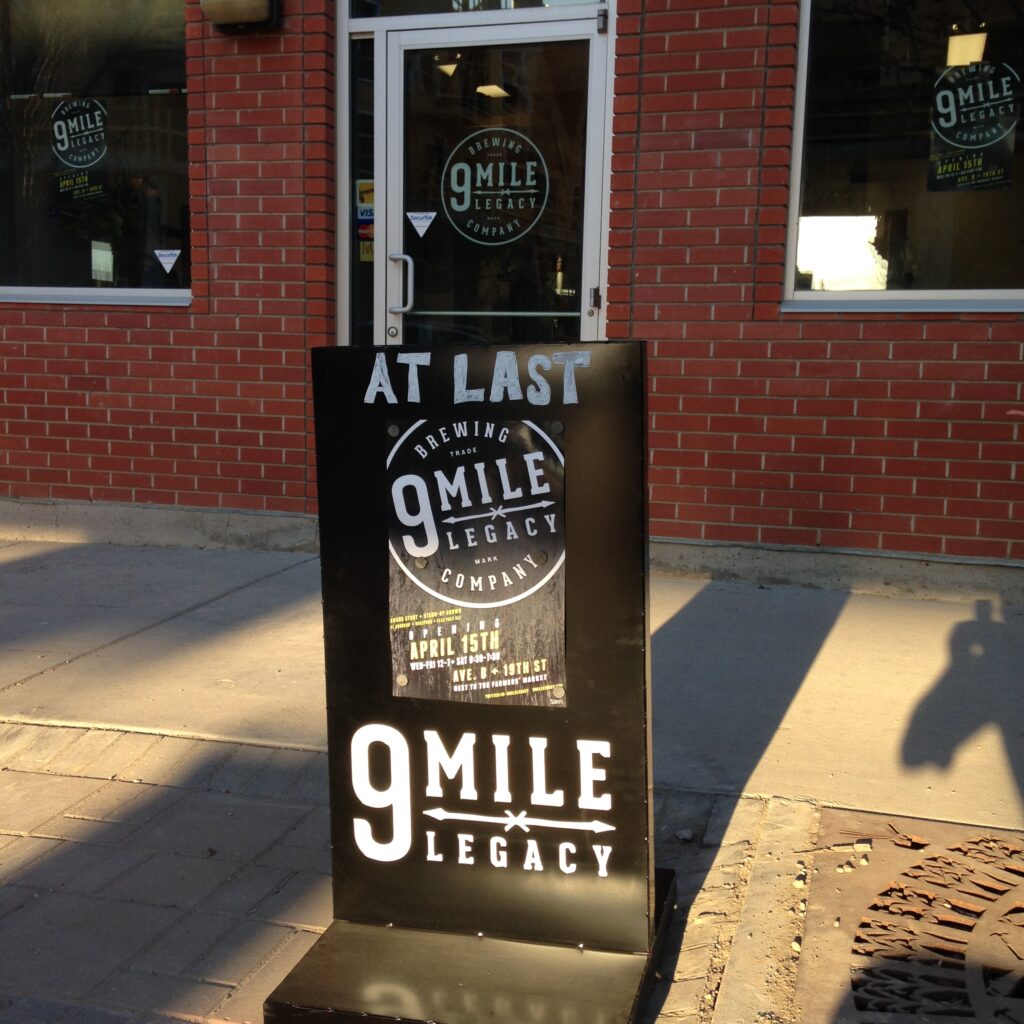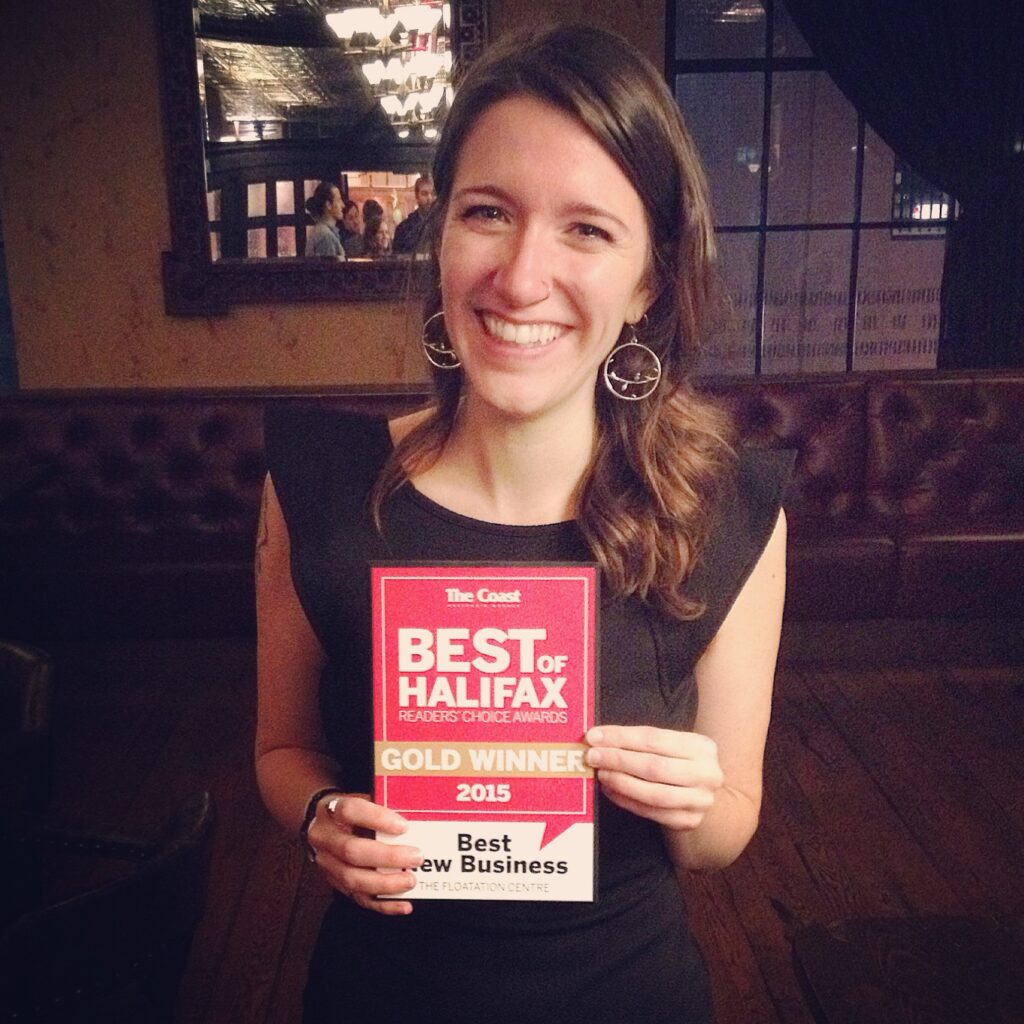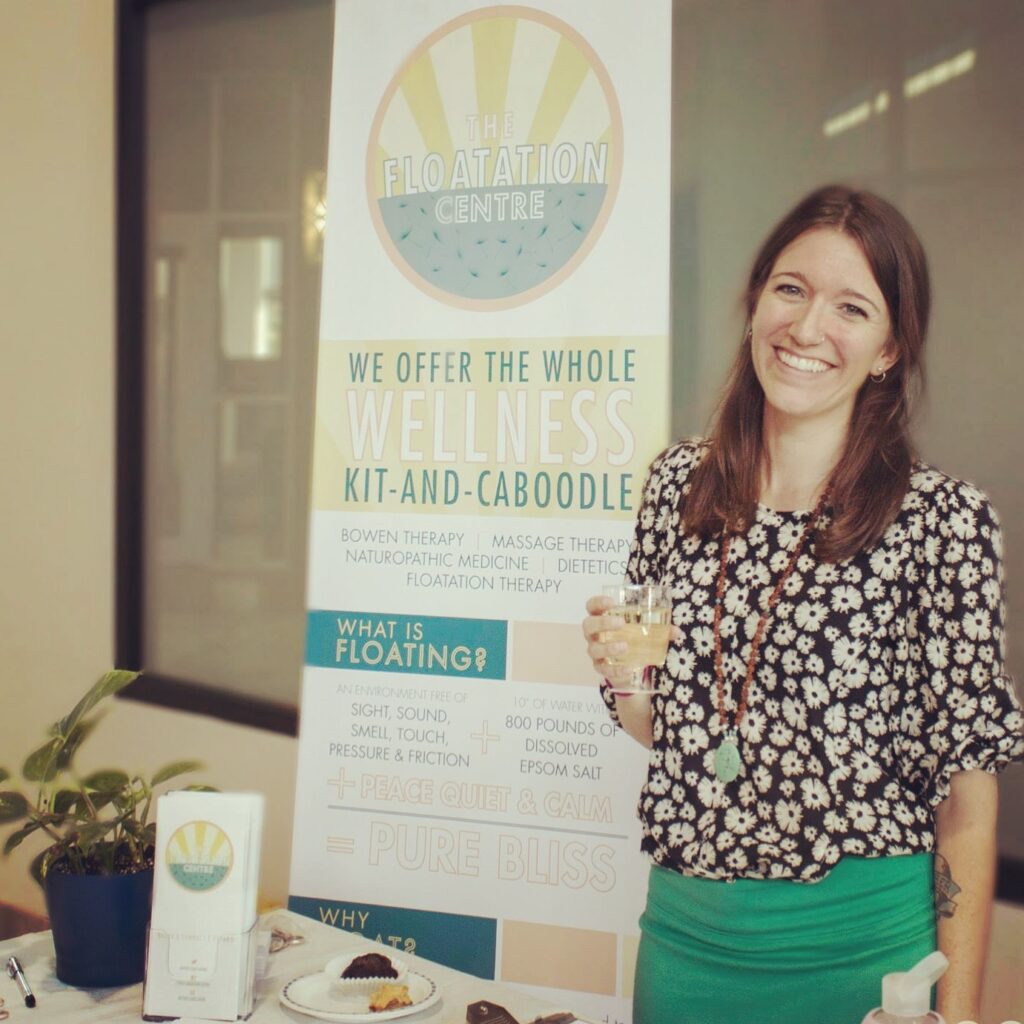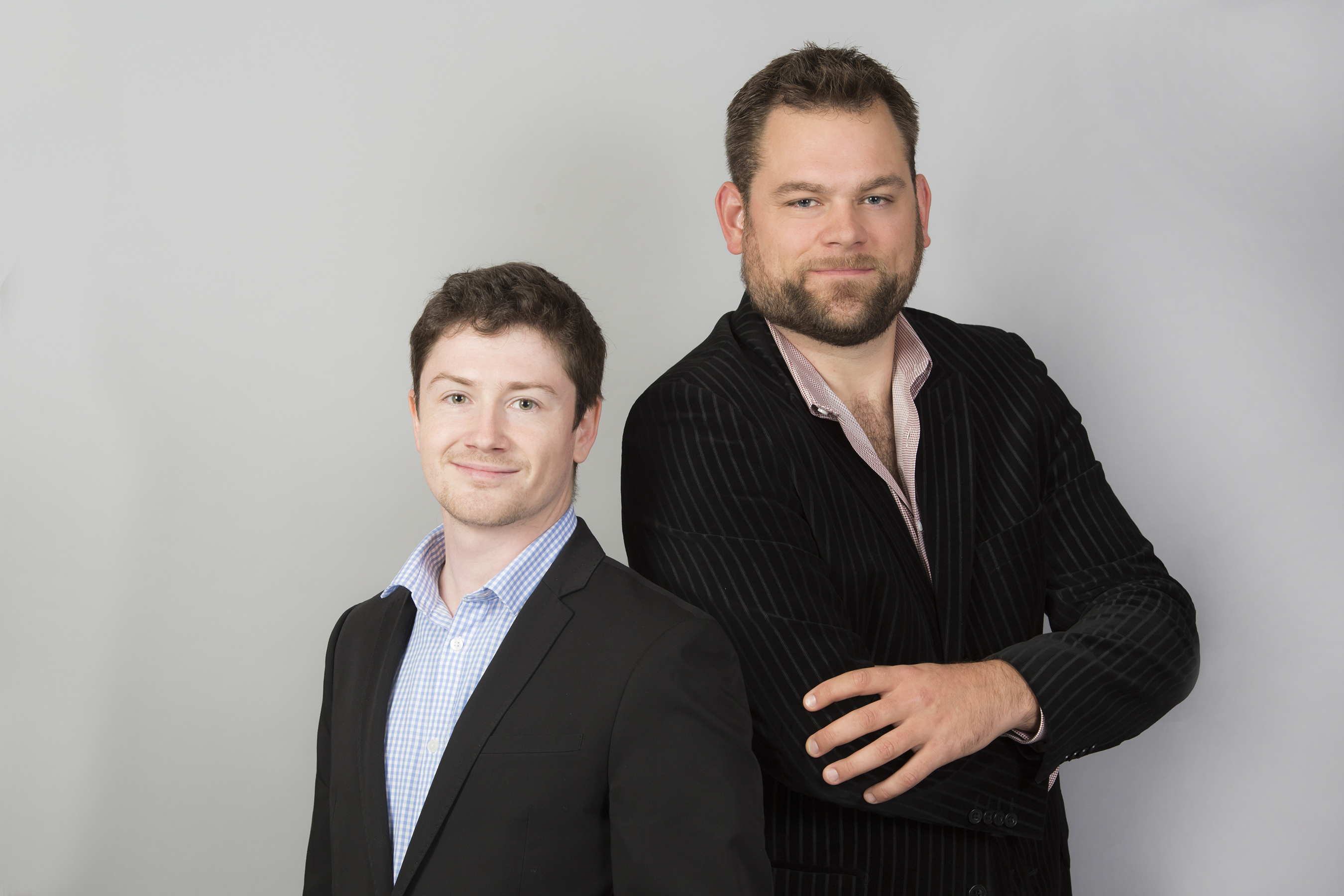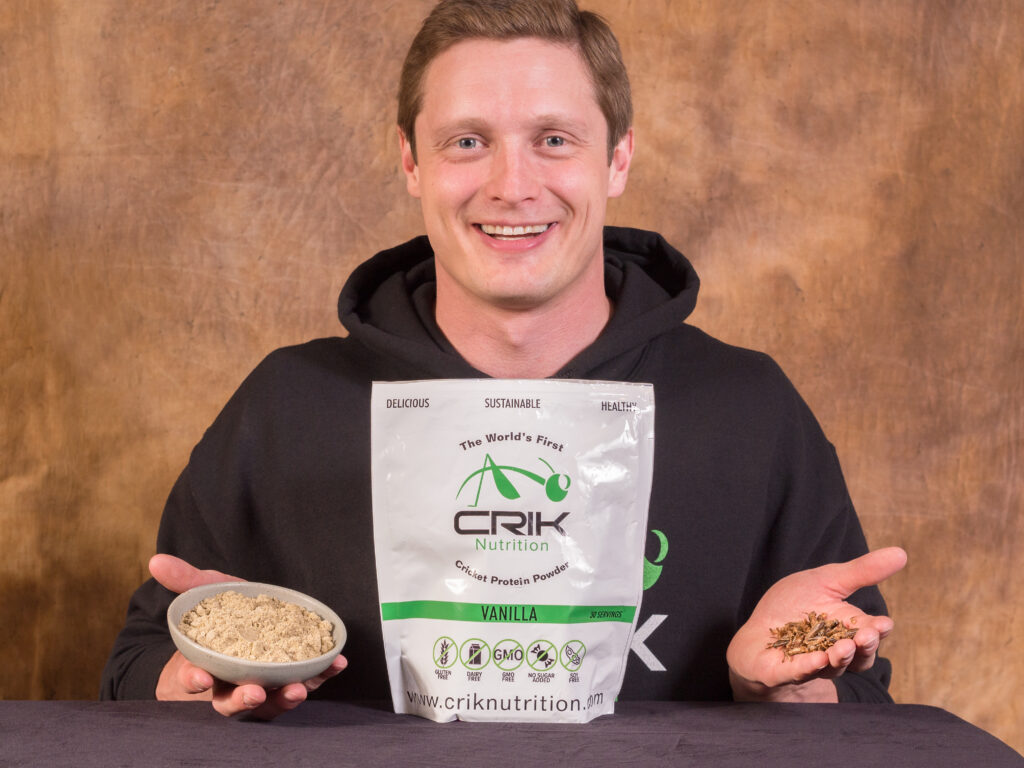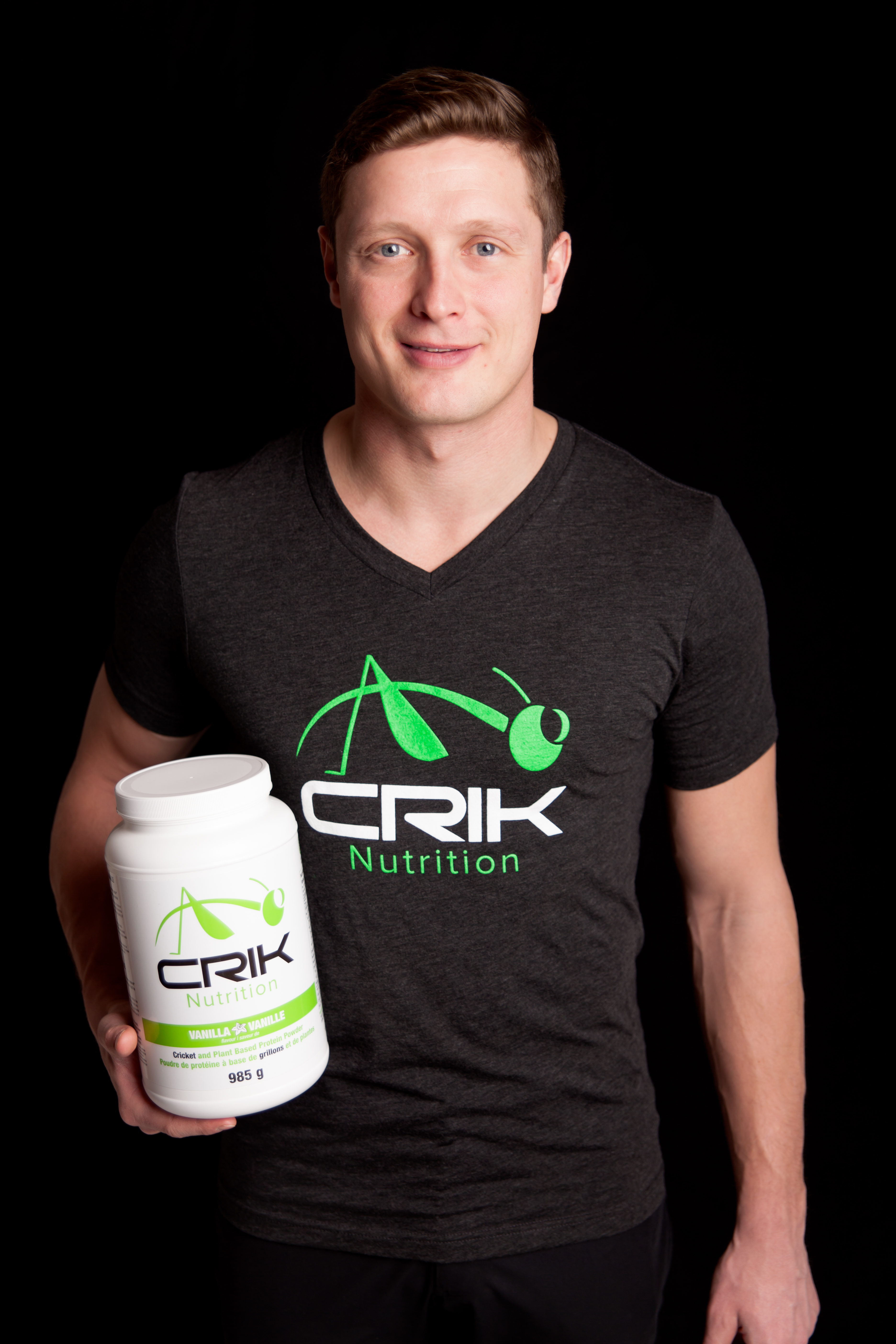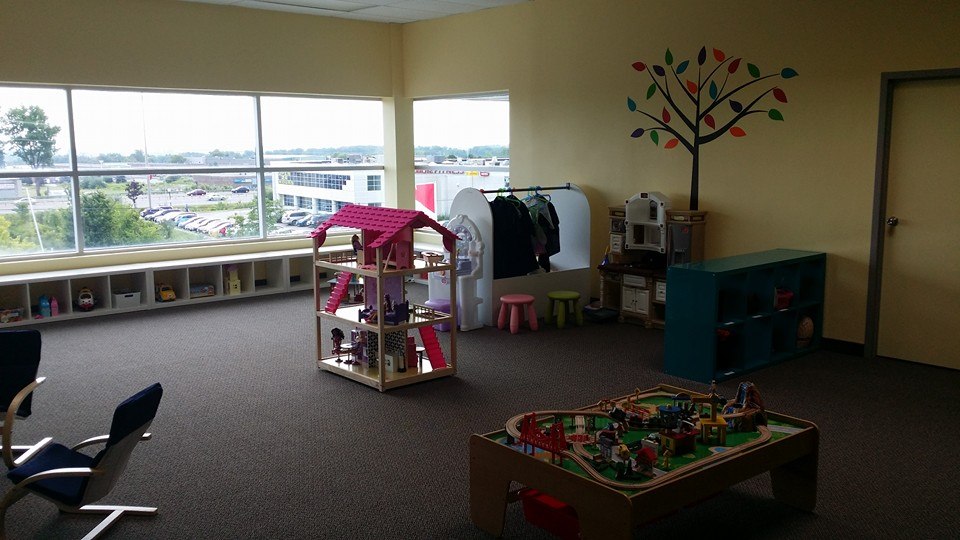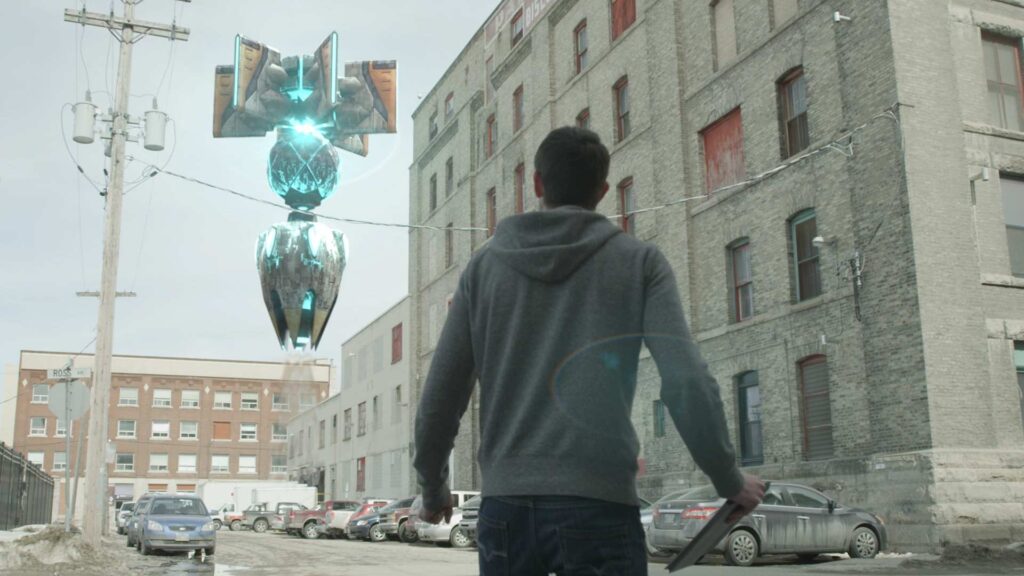Spotlight on Dominique Leger of In Pursuit: The Road to Finding Her Passion for Fashion
After spending most of her childhood in Fredericton, New Brunswick, Dominique Leger had her sights set on the big city. Upon graduating high school, she immediately moved to Toronto on her own at 17 and enrolled in the International Academy of Design and Technology. After graduating, New Brunswick called Dominique back home and she settled in Moncton to start a career in retail, working her way up from sales associate, to assistant manager, to store manager, and was eventually offered an opportunity to relocate to Ottawa, Ontario to gain experience in merchandising—a dream for Dominique.
Packing her things up in a U-Haul, she headed off to Ottawa, where her dream job was exactly how she expected it to be, but unfortunately the company eventually decided to eliminate the position due to project completion and budget cuts, and Dominique had to take a hard look at what was next—moving back to New Brunswick, or stepping back down to her store manager role she held previously. She decided to leave Ottawa and realized that her retail career was over—Dominique wanted a Monday to Friday, 9-5 job, so she set her sights on an office job, as she felt that was her new dream and passion.
After landing her first desk job, she struggled because she just wasn’t passionate about the industry. “I had a hard time not doing something different every day,” Dominique explained. “I missed the face-to-face interaction with complete strangers, the hustle, the sales goals, the seasonal change overs, and even the holiday season chaos.” It was evident that Dominique missed her life in the fashion and retail industry. “I knew that’s where my heart was and I somehow had to find my way back, I just didn’t know how to do it unless I took a retail job or opened a full time, all day, every day boutique, and neither of those seemed quite right,” Dominique said.
Her longing to be back in the fashion industry, landed her an opportunity with StartUp Fashion, a New York City based company. Dominique was hoping that this would cure her blue, and it did, for a while. After working as a community manager responsible for social media content, as well as a retail editor on their website which allowed her to come up with new industry related content every week, at the end of the day, she was still craving more.
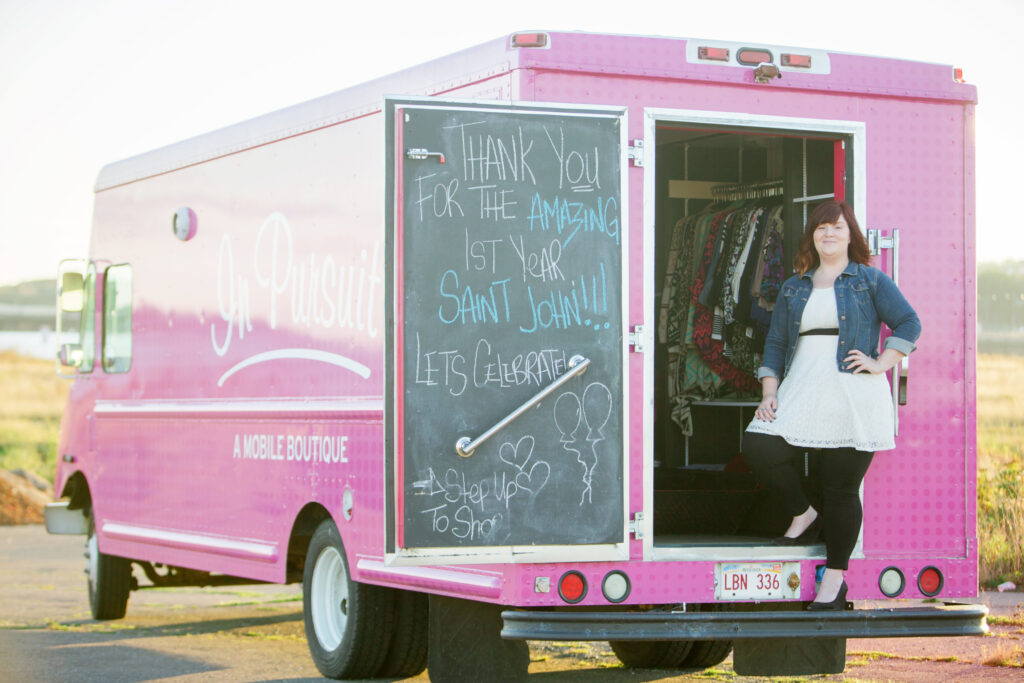
After spending some time in Boston one summer, she stumbled upon a market called SoWa, that had over 30 different food trucks on any given weekend—and this is where Dominique’s wheels started turning. “We were wandering the market and I noticed a plain looking white truck off by itself, clearly not serving food but with a crowd of women standing around outside,” Dominique described. “I had just enough time to stick my head in and notice two racks of clothes before we had to leave, and noticed the name to Google the truck when I came home.” When Dominique found herself back at home Googling the fashion truck she spotted at the market, bells, and whistles started going off at the same time. “I found it. A mobile boutique. That was it, the inspiration I’d been looking for,” Dominique explained her feeling.
From Dominique’s path to discovering what she wanted to do with her passion for fashion, In Pursuit Mobile Boutique was born. In Pursuit is a bright pink truck filled to the brim with the latest in women’s apparel and accessories—the first and only mobile boutique serving Eastern Canada. Dominique describes the boutique as being the fashion truck for lady bosses, go-getters and rockstar girlie girls who know a good thing when they see one, and when you see In Pursuit popped up on the street side, it’s hard to miss.
After overcoming the barriers with City Hall around their by-law that stated it was illegal to operate a business on a street or sidewalk in Saint John, by getting enough people to come together and agree to create a policy or procedure for her to get a proper permit from the city, In Pursuit finally had the chance to hit the road. “There were so many people on board with the idea and concept from the beginning that saw the vision and were open-minded enough to realize that mobile is potentially the future for many different types of businesses,” Dominique explained.
For others who are trying to find a career path that is fulfilling, Dominique says: “Just do it! Follow your heart and make your dreams come true. Don’t take no for an answer. Persistence, patience and a little bit of stubbornness will take you everywhere.”
For more information on Dominique’s business and story, click here.
How to Stay True to The Experience While You Grow
Managing multiple locations is a mountainous challenge for so many entrepreneurs. Here’s a look at what often comes up on the expander’s journey, and what to do about it.
 – by DEVON BROOKS, Advisor & Co-Founder of Blo Blow Dry Bar, Futurpreneur Canada Mentor and Board Member, Named 1 of Canada’s Coolest Entrepreneurs by PROFIT Magazine. www.devsdevelopment.com
– by DEVON BROOKS, Advisor & Co-Founder of Blo Blow Dry Bar, Futurpreneur Canada Mentor and Board Member, Named 1 of Canada’s Coolest Entrepreneurs by PROFIT Magazine. www.devsdevelopment.com
The thing is — most people want to grow. In fact it’s all many entrepreneurs are ever thinking about; when to grow, where, how and who to do it with. There isn’t a one size fits all approach to scaling a business, and certainly there is no-end to the important questions we can ask ourselves as we begin to take the first steps towards doing it. The following are three high-level questions I have seen help founders, and their teams care for a business with more than one consumer-facing brick and mortar space:
1) Are you assuming that franchising is the golden ticket?
Recently I was on a quick mentorship support call with a young entrepreneur whose retail business was pulling in revenues of nearly $700K (CDN) by the second full-year in operation, with one location. She and her co-founder were already fielding interest from a few local parties that wanted in on the action. The first serious conversation that she and her business partner were having about their growth was with a group of potential partners focused on a franchise strategy. The problem here is that so many founders get giddy about what they think will be a ‘speedy’ strategy, and suppose that franchising means lower HQ overhead and initial costs every time. When I asked these particular founders if they had the systems in place to be able to roll out a new location tomorrow, regardless of where it was. She replied ‘yes, I think so’. I then inquired about how those systems had been articulated and documented. Basically, could she drop a handbook into a freshly appointed managers mitts tomorrow and let them hit the ground running with head office guidance? Her answer, ’well I’ve got the systems down in my head’. Right. Franchising, or geographical partnerships, require even more elbow grease in terms of systems, on-boarding and ongoing-support. Not every leader is cut out for it, and not every business model is best suited to it.
SO: Use your first location as your test kitchen. Set up a dope little digital binder, and each time you notice a system is working, pen it. Don’t wait until later. Pen it right then. Whether or not you franchise this will become your operational jetpack. If you are seriously considering franchising I highly recommend opening and operating at least one additional store before you start franchising multiple locations, or looking for partners. This way you‘ve tried and tested your systems and have already had the chance to troubleshoot any operational madness. Whether you have a co-founder or not, sit down and spend time considering your vision for your company and brand, and then define what kind of partnership or funding is best suited for you based on the needs of that vision. When people say they want to get on board with you, the excitement factor can be overwhelming. Don’t get giddy and lose touch with your intention.
2) Are you playing favourites?
Your first location feels like your baby. You know every crevice, nook and cranny in there because it feels like home every time you walk through the front door. Likely, there are also logistical contributors to playing favourites as well, like, the location is closest to your home, or you base your office out of it. If that’s the case, maybe you get too lazy to drive to the others, or the crazy traffic deters you, and then eventually you find yourself facetiming to check-in instead of actually being there. Watch out for this. Skimping on the in-store presence of the leadership team can result in sales loss, communication breakdown, and decline of morale. Those other teams often end up losing accountability to the experience. Every team member you’ve got needs to see role-modelling.
SO: Don’t let great tech for managing people, products and staying in touch become a vice for you to ghost out on your team. Show up. Nothing is as effective as having the founder, or esteemed leader, in-the-flesh. You’ve got to mentor, inspire and connect with every living thing in the biz.
3) Are you doing what it takes to keep the Vibe alive?
Your brand is measured by how it makes people feel – how it’s remembered, and what it is remembered for. The Vibe. Nurturing the Vibe of the in-store environment and maintaining it throughout a collective of locations is an absolute craft. In a brick and mortar space there a number of environmental factors to consider from sound and smell, to decor, to the flow of the point-of-sale. That said, your greatest brand asset is always going to be your people. In the early days, when my business partners and I founded Blo, we’d create unity amongst the divided teams by designing playful competition. I loved our dance-battles: we’d pick a theme song and each location would film and submit their-battle video for a chance at a rad prize and bragging rights. This helped keep spirits light and high, and allowed the teams to connect over more than sales numbers and scheduling. Figure out a few cultural practices that help evoke the visceral feeling you want your customers and team to experience, and make sure they are on brand for your business.
SO: Embolden your team-members to be stewards of the brand promise. If you don’t have a brand book, baby, you need one. It’s 2016. Creating and preserving magic is about communication, community and culture. Every soul you employ should have a copy of your brand book — and be able to recite your purpose and values, better than they can rap a verse from Juicy (and, who doesn’t love Biggy Smalls?).
To book Devon or learn more about what she’s got brewing, scoot over to devsdevelopment.com — sign-up to get in on growth goodies she only shares through her email, and stay tuned for details about her forthcoming book.
Spotlight on 9 Mile Legacy Brewing: A Century of History Brews a Partnership
As a former lawyer and environmental engineer, Shawn Moen and Garrett Pederson knew for years, before even starting their own business, that they had a passion for well-made beer. Like many entrepreneurs, their passion, combined with an opportunity to take a swing at starting their own business, was where 9 Mile Legacy Brewing was born.
In 2013, both Shawn and Garrett left their professional careers behind to travel and work in commercial breweries. The intent was to learn more about the industry so they could eventually start their own brewery, but the partnership between the Moen and Pederson families started well before Shawn and Garrett’s time. A hundred years ago, both families immigrated to Saskatchewan and had farms nine miles apart from one another. “As a result of being neighbours and sharing a similar mindset and approach, each generation of Moens and Pedersons seems to have found themselves working together, weathering hardships and celebrating good times together,” Shawn explained. The partnership between Shawn and Garret is very much a legacy of those who came before them, and the family history is where the name 9 Mile Legacy Brewing came from.
After traveling to places throughout the United States, New Zealand and British Columbia, their passion for beer and tradition brought the pair back to Saskatchewan to open their business. “It has been wonderful to share different beer styles with the people of Saskatchewan and push boundaries of what beer can be,” Shawn said. Aside from bringing their passion for beer home, Shawn explained that being able to breathe life into an idea and watching it grow has been one of the most rewarding parts of being an entrepreneur.
Since Shawn and Garrett have been friends for as long as they can remember, going into business together seemed natural for them, but that doesn’t mean that the partnership with one another is always easy. “The key to maintaining our partnership and friendship has been developing a clear understanding of our roles and responsibilities and then committing to communicating clearly and respectfully,” Shawn explains. “It’s definitely not easy and takes a look of work, but having a business partner on whom you can rely and trust is invaluable.”
As a lawyer and environmental engineering technician, Shawn and Garrett’s professional backgrounds weren’t in the beer industry. However, Shawn feels that their experience in those fields definitely informs how they approach their business, whether from a technical level like how to deal with regulators, or a general level like understanding the value of client service. Upon deciding to quit their corporate careers, the pair deliberately sought out industry-specific work experience while they were traveling around the world. “This was not easy, we spent the better part of a year doing this and we were often working for free,” Shawn explained. “But the importance cannot be understated.” Like any new business, there’s always a huge learning curve, but gaining valuable experience in the industry definitely helped the two put their best foot forward.
Shawn and Garrett had two pieces of advice for others starting a business:
1) Plan and prepare. At some point you will need to jump in the pool and start to swim, but the more you can identify and prepare for in advance, the better your chance your business will have at succeeding.
2) Surround yourself with like-minded and competent people. Many small businesses are successful initially due to the vision of the founders, but if you can’t move beyond that, you can suffer from tunnel vision and stagnancy.
You can follow 9 Mile Legacy on Twitter here and on Instagram here.
Written By: Lauren Marinigh, Social Media & Content Creation Coordinator, Futurpreneur Canada
Spotlight on Variant Edition Comics + Culture: Building an Inclusive Culture is Good for Business
Brandon Schatz and Brendan Capel love comics and gaming, but always thought the industry as a whole needed to do a better job of making products, services and events available to people other than the die-hard fans. They based their business, Variant Edition Comics + Culture, on this belief.
“We started Variant Edition after deciding that Edmonton’s comic market was focusing on far too narrow an audience,” said Brandon. “Comics and gaming, as all forms of entertainment, include something for everyone. Having a place that not only had something for everyone, but made an effort to bring in a wider audience to the mediums, felt like something vital that has been missing from the community.”
As their name suggests, Variant Edition is not a regular comic shop. “In industry terms, a ‘variant edition’ is a comic that has the same contents as a regular edition, but a different cover,” explains Brandon. “Much like that, we are stocked like a normal comic shop, but the way we go about business is different. Instead of focusing on collectors, we key into readers. You won’t find new comics on our shelves sold for wildly inflated prices just because they are deemed ‘rare’. We offer comics as they were and are intended to be: items to be read and enjoyed for fair prices.”
There is no shortage of competition from other comic stores in Edmonton. However, sticking to their values around inclusiveness, Brandon and Brendan set themselves and their business apart. They work hard to maintain a unique and welcoming experience for all customers that enter their store. They also use social media extensively to share updates and as a way to interact with the wider community.
Brandon and Brendan’s inclusive approach to comics and gaming seems to be working. “As it turns out, if you stock a wide range of product and genres and don’t shame people for a perceived lack of knowledge of the medium (a big problem in the comic industry), the audience will emerge,” said Brandon.
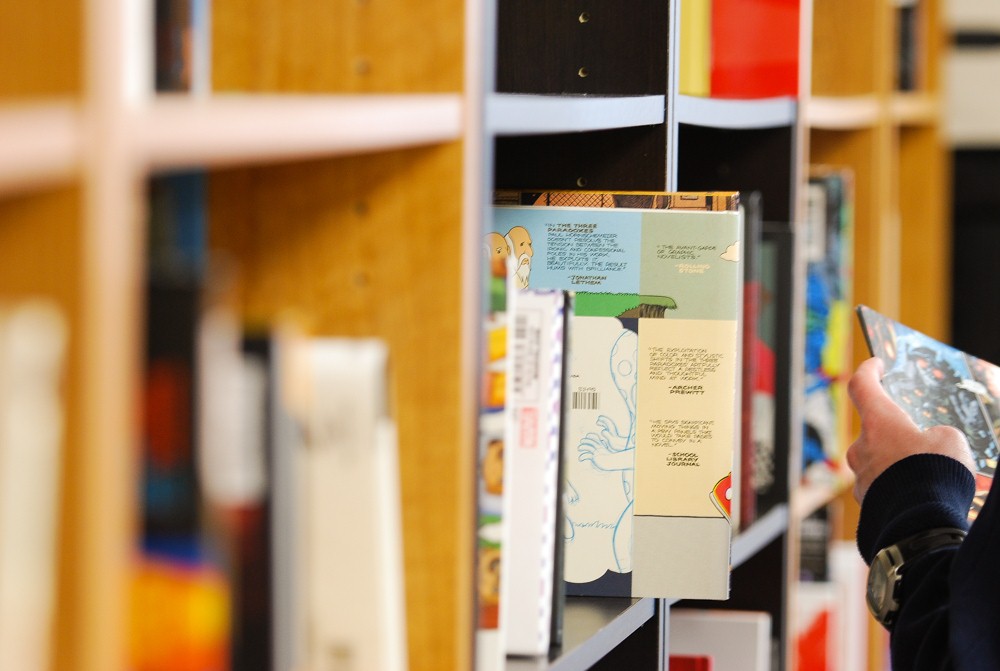
He says it’s heartwarming that they have been so successful at creating an open and welcoming environment for people in their community. “Hearing people come in and say that this is one of the first comic stores they’ve felt comfortable in has been so rewarding.”
Looking to the future, the duo will continue building on their success. “In the short term, we’d love to grow our place as the biggest comic shop in Edmonton,” said Brandon. “We’d like to be able to make sure there are as little barriers to reading comics or getting into card and board games as possible, not only growing as a business, but supporting the community both in and around the store.”
In the longer term, Brandon and Brendan would like to be able to move their business into a larger space.
To aspiring entrepreneurs, Brandon shares this advice: “Prepare well and be adaptable. But accept that all the planning in the world won’t save you from the random things that can and will impact your business. Allow yourself some movement while keeping your vision in mind.”
Written By: Rachel Shuttleworth, Marketing Manager, Futurpreneur Canada
Spotlight on The Floatation Centre: Hope Floats When it Comes to Entrepreneurship
After being disgruntled with her 9-5 career in engineering, Lindsay MacPhee decided to cut ties with her engineering life and open Atlantic Canada’s first floatation therapy and wellness centre. A firm believer in the benefits of meditation, Lindsay spent a lot of time asking herself: “What is my purpose?” and engineering didn’t seem to be the answer.
Some much-needed time off gave her the opportunity to reflect on her dreams and goals. “All I wanted to do was help people,” Lindsay said. She explained that three years ago, she would have laughed at the idea of starting her own business and even though she dreamed of doing something more fulfilling, her endless student loans were deterring her from pursuing her dreams. Eventually, Lindsay decided to take the leap into entrepreneurship and opened The Floatation Centre in Halifax.
The primary focus of The Floatation Centre is floating and sensory deprivation. The process of floating has actually been around since the 1950s but only recently gained more popularity when the benefits of floating because more readily available. Lindsay explains that each practitioner is committed to helping others elevate their quality of life.
Lindsay explained that in the initial stages of starting The Floatation Centre, there were two notable hurdles that she had to overcome: educating the public about the science and benefits of floating, and overcoming the Nova Scotian “have-not” mindset. Lindsay spent a lot of time networking and putting her elevator pitch to use. “It was important to not only tell others about my business, but about the benefits people can get from it,” Lindsay explained. Keeping a positive perspective, knowing when to lean on others and following her passion are all things that helped Lindsay be successful in starting her own business.
But how does an entrepreneur find customers for a new business and new concept for Nova Scotians? Lindsay emphasized the importance that networking played in finding customers. “Personal connection is what propels this business,” she explained. “There’s no amount of paid advertising that will even come close to the importance of human connection when it comes to floating.” Lindsay explained that she was genuine and sincere with all her interactions and took the time to listen and answer questions and concerns people had. “The ripple spread outwards from there.”
Due to Lindsay’s hard work and dedication to starting her own business, The Floatation Centre was awarded Best New Business in the Best of Halifax Awards. Her advice to entrepreneurs wanting to start their own business is to follow your intuition, find a mentor who will hold you accountable and keep focused on your goals. “It’s so easy to get caught up in the little things that need to happen to make the big picture come to fruition, but always remind yourself why you opened your business and celebrate the little wins!”
To learn more about Lindsay and her business, click here.
Written By: Lauren Marinigh, Social Media & Content Creation Coordinator, Futurpreneur Canada
Spotlight on LlamaZOO: The Game Changers in Medical Education
They say that you aren’t necessarily born an entrepreneur, but for Charles Lavigne and Kevin Oke, of LlamaZOO, it seems to be in their genes—Charles came from an entrepreneurial family, with both his parents running their own businesses, and Kevin’s father and grandfather were both entrepreneurs. For both Charles and Kevin, using their past experiences to bring their ideas to life and create new things was something that they were passionate about—which is why they created LlamaZOO.
LlamaZOO is an e-learning platform that marries interactive 3D with gamification and teaching methods based on cognitive neuroscience. Research shows that using interactive 3D in the classroom can make students more efficient, confident and engaged. “Any subject that requires understanding of spatial relationships and structures can benefit from our platform’s 3D visualization,” Charles explained. LlamaZOO’s first product, EasyAnatomy, caters to the fields of veterinary and animal science education by providing interactive 3D models of canines created by using MRI and CT imaging.
Charles and Kevin received support through the Spin Master Innovation Fund, a program run by Futurpreneur Canada and Spin Master Ltd. where innovative start-ups compete for up to $50K in financing as well as mentorship and access to exclusive workshops led by industry leaders. As entrepreneurs, Kevin explained that it can be difficult to foresee all the twists, turns and costs that will come up along the way. Programs like the Spin Master Innovation Fund not only help provide expert advice to new entrepreneurs, but also give entrepreneurs the opportunity to connect with others that are in the same boat. “Being able to spend some time with others in the same position was equal part knowledge-sharing, as well as a form of therapy,” Kevin described.
On top of being the financing received through the Spin Master Innovation Fund, LlamaZOO also landed a private equity investment. Their investor, who they met through their local accelerator, VIATEC, in Victoria, British Columbia, was looking to invest in projects that crossed over between healthcare and education. After spending a fair bit of time getting to know each other and discussing how the company worked, the entrepreneurs and the investor decided it was the perfect fit. “Eventually he wanted to invest and we went through the process of identifying characteristics of the deal, essentially a statement of understanding. We then each had our lawyers draft things up in a more formal way,” the pair explained. “The biggest take-away is that it takes longer to close a deal than you expect, but because we had a good relationship with him, it was fairly painless.”
Starting a tech company isn’t an easy thing to do. Charles stressed how important it is for entrepreneurs to really get to know their market opportunity and the problems customers have, and then focus on solving those problems to maximize the value you can provide. “You should also try to do something you know something about,” Charles said after explaining that the pair knew nothing about the veterinary space, but quite a bit about developing interactive software. “This will help you stay interested, because it’ll probably take longer than you expected.”
2016 looks to be another exciting year for Charles and Kevin as they are heading back to Toronto in the spring to catch up with some of the other Spin Master Innovation Fund recipients. This summer, they also look forward to launching EasyAnatomy software into schools.
To learn more about LlamaZOO, click here to visit their website.
Click here to sign-up to be informed of the Spin Master Innovation Fund and the next round of applications.
Written By: Lauren Marinigh, Social Media & Content Creation Coordinator, Futurpreneur Canada
Spotlight on Crik Nutrition: One of the World’s Hottest Start-Ups
Alex Drysdale, a resident of Stony Mountain, Manitoba, always felt an inner driver to become an entrepreneur, but didn’t really know it was possible until just a couple years ago. Like many entrepreneurs, Alex dabbled with entrepreneurial things such as buying old houses, renovating them and then renting them out on the side of juggling his full-time job, and to him, he loved being the one responsible for making the decisions. “Whether it worked out or not was on me,” Alex shared.
Having a full-time job was making Alex miserable, he didn’t like being forced to sometimes take instructions that made little sense, and after being with his previous job for nine years, he knew it was do or die time. “I quit, sold everything, and moved to Europe to learn all about e-commerce from some smart, experienced friends,” Drysdale shared.
While Alex was increasing his skillset and knowledge in the e-commerce world, he happened to read an article on Facebook about a company making protein bars with crickets. “As I started reading about why the company chose crickets, the answers kept getting better,” Alex explained. “Being focused on health and fitness my whole life, the benefits definitely appealed to me and I wanted to give them a try.” After hours of searching online for a protein powder made from crickets, since Alex didn’t eat protein bars, he realized there was a gap in the industry. “I remember right then and there, I swiveled around on my chair, erased my entire white board and put ‘Cricket Protein Powder’ at the top, ordered up some ground crickets, and went to work experimenting.”
But why crickets? Alex explained that there are two sides to this question. First off they are nutritious and naturally high in protein, which means that when you grind them up into a powder, they don’t need to be processed. “Crickets are high in calcium, iron, B12, omegas, zinc, magnesium, amino acids, and more,” Alex listed off. On the other hand, crickets are eco-friendly, they use less feed and water than beef or dairy, and produce very little greenhouse gases.
Fun Fact: The methane livestock expel is 30x more harmful than the CO2 that comes from transportation. Plus, livestock produces more than all types of transportation combined and uses up ½ of all landmass in the U.S.A. Crickets use 2000x less space and grow 13x faster!
The environmental and health facts of using crickets for protein seem clear, but Alex told us about all the hard work and energy he’s put into turning this idea, that started from reading an article on Facebook, into reality. “If an aspiring entrepreneur wants to start a business, and develop a consumer product like Crik Nutrition, they’re going to have to be all in and willing to learn and become an expert,” Alex explained. “When you’re an entrepreneur, you have to wear many, many hats, and a lot of those hats suck, but when you’re passionate and believe in something, it makes it more bearable.”
Even though Alex has worked hard to become a subject expert in using crickets for nutrition, he couldn’t stress enough how important it is for entrepreneurs to get help and reach out for advice. Alex is a recipient of the Spin Master Innovation Fund, a program supported by Spin Master Ltd. and Futurpreneur Canada, where innovative entrepreneurs compete for up to $50K in financing, mentoring, and the opportunity to connect, and attend expert-lead workshops. “Getting personalized mentoring and consulting in every department of my business from such an experienced team was huge and once in a lifetime,” Alex shared about his Spin Master Innovation Fund experience.
Since launching Crik Nutrition, Alex has seen his hard work pay off. He is the only Canadian company out of 50 finalists in the Global Entrepreneurship Network’s Startup Open and was also recently named on CNBC’s list of the 20 Hottest Start-Ups in the World. Although Alex attributes his recent recognition to the fact that crickets are a big attention grabber, he also feels that since health, sustainability and animal welfare are such hot topics right now; crickets really hit the nail on the head.
With Alex’s determination and commitment to his business, there’s no doubt we will continue to see him and his product popping up all over the place, and for those wanting to compete with him, he laughed as he told us that you better be good and hungry because he’s putting all his energy he has into this!
Follow Crik Nutrition on Twitter, Instagram and Facebook.
Click here to sign-up to be informed of the Spin Master Innovation Fund and the next round of applications.
Written By: Lauren Marinigh, Social Media & Content Creation Coordinator, Futurpreneur Canada
One Year In: A Mentor & Mentee Reflect On the First 12 Months in Business
Written By: Glenn Nishimura, Chief People Strategist at Nishimura Consulting & Futurpreneur Mentor
When I first tell people that a woman I mentor owns a 24-hour daycare centre, the response is always the same: “A what?”, followed by a couple seconds of silence, and then a resounding: “Oh, that’s such a great idea!”
A lot of parents in the Barrie-South Simcoe area of Ontario think it’s a great idea too. In just over a year, Little Start Childcare—only the second 24-hour childcare facility in Canada—has grown to 26 employees, 703 families enrolled, and has ambitious plans to grow even more. With 30% of Canada’s workforce working rotating or irregular shifts—her clients include first responders, CN Rail, Honda and the Canadian Military—it’s a much needed service with plenty of room for growth.
I sat down with Cheryl Peyton, the centre’s founder and owner, to reflect and talk about her first 12 months as a young entrepreneur and business owner.
What’s been your happiest moment?
It has to be accomplishing something I never dreamed could be a possibility. When the sign first went up on the building I was in complete awe. Establishing my own identity as a business woman is a big part of that too, but it still hasn’t completely sunk in yet. Having parents thank me on a weekly basis for providing them with such a valuable service is incredibly rewarding. I even had one parent tell me they were expecting their second child, and said if it wasn’t for our centre they would never had even considered having more children! Knowing that this family needs us that much makes me extremely happy.
What’s been your biggest challenge?
Trying to balance being a friend and a boss, one who listens, has compassion and is there for her staff, is definitely one of my challenges. But the biggest is trying to balance family and work. Sometimes I feel as though I’m missing out on the time I spend with my children, however I know that soon I’ll be able to spend more of my time off with them.
What’s been your biggest surprise?
The cost! When you’re planning your business and doing two year expense projections, it’s never going to be 100% accurate. I’ve learned a lot and missed a lot. But the biggest surprise was the overwhelming response to the centre. I knew in my heart that it could be a great service, but to grow to the numbers that we have now has exceeded my expectations.
What was the hardest lesson you’ve learned in your first year of business?
That I can’t be everything and do everything all at once! I’m human and make mistakes, but you learn from them and hope that you don’t make the same ones again. I have also learned where my loyalties lie, and that there are only 24 hours in a day. How I wish there were more to get things accomplished.
Any advice to other young entrepreneurs in their first year of business?
Not to give up! It is hard work and hours and hours and hours of long days, but know that it will get better. Strive for the next step, and aim higher with every goal. Sometimes I would feel like I’ve faltered —like I took 10 steps backs after taking 5 steps forward—but then something amazing would happen and I would realize I just stumbled a bit, and get right back on the path again.
Finally, listen to your employees—they have concerns and need to know they are being heard.
One of my biggest struggles has been with employees. You’ve taught me a lot about team dynamics, and how important it is to have the right people with the right stuff to create the right atmosphere. It literally can take only one employee to make your world unbearable.
About Cheryl:
Cheryl Peyton is a Futurpreneur mentee, and the founder and owner of Little Start Childcare Inc., a 24-hour childcare facility located in Barrie, Ontario. You can reach her at 705-728-7807 or cpeyton@littlestart.ca
About Glenn:
Glenn Nishimura is the Chief People Strategist at Nishimura Consulting, and a Futurpreneur mentor. He helps entrepreneurs, startups and small businesses across North America and Europe to build strong company cultures and smart people practices. Connect with him at 416.566.6892, glenn@nishimuraconsulting.ca, or on Twitter @NishiHR
Spotlight on RazorCompany.com: Helping People Eliminate the Shaving Aisle
Sometimes becoming an entrepreneur runs in your family and for brothers Spencer and Trevor Dennis that’s what lead them to wanting to start their own business and create their own destiny. For 11 years, the brothers owned and operated a residential design and build company, but even though their company had always done well, they had interest in creating an online store.
After Trevor had gone for a straight shave at a barber in Las Vegas, and had been struck by the sales associates trying to sell him a very expensive razor with shaving lotions, his wheels started to turn. The brothers knew there were already other online companies selling shaving supplies that came on a reoccurring basis, but they wanted to differentiate themselves by offering not only a great product, but for a great price—and that’s where the ideas for RazorCompany.com was born.
RazorCompany.com caters to its members by offering three types of razors for both men and women, a line of all-natural, Canadian-made shaving creams, soaps, aftershaves and pre-shave oils, and by providing its customers with a less expensive (and more convenient) option then shopping at the store. On top of the range of products and packages customers can choose from, RazorCompany.com will deliver everything right to your house every two, four, or six months (depending on your shaving frequency).
By creating something so convenient and custom for customers, it’s hard to believe that Trevor and Spencer faced challenges with converting customers to buying online. “Although everyone hates paying the high prices at the store, shaving supplies are one of those items you do not think about until you are there and remember you need them,” Trevor explains. Trevor shared that once customers try their product, their retention rate is great, but the people that want to physically hold a product before they purchase it are the tricky ones to convert. Because of this, the company offers a 100% money back guarantee and has no long-term commitment requirements whatsoever.
Being an entrepreneur can have its highs and lows, but Trevor explained that the most exciting thing for his brother and him is when people tell them how pleased they are with the product. “It sounds silly because it is shaving, but we put well over a year into finding the right company to produce our products, so when people are excited about it, that gets us excited too!”
Starting a subscription-based service in particular offers its own set of unique challenges, but Trevor says that you have to be ready to put in long hours and get it out to as many people as you can. “When you don’t have a brick and mortar store where you can rely on foot traffic, you have to stay positive and creative so you can figure out how to push people to your website.”
Trevor and Spencer started RazorCompany.com in 2013 and continue to live and breathe their goal to help people “eliminate the shaving aisle.” You can follow RazorCompany.com on Twitter, Facebook & Instagram.
Written By: Lauren Marinigh, Social Media & Content Creation Coordinator, Futurpreneur Canada
What can an old Greek man teach a young entrepreneur? Ask Jim
I know an entrepreneur named Jim. Jim runs a gas station in Scarborough. In fact, he’s been a fixture of the local landscape in what used to be called the “Gateway to Toronto,” a unique stretch of Kingston Road that is dotted with cheap motels, donut shops, tattoo parlours and block after block of strip malls.
A pit stop at Jim’s for a full-service fill-up is pretty much a daily routine for hundreds of his faithful customers on their drive downtown. From my third-generation Canadian perspective, what Jim has accomplished in his life since coming to Canada as a teenager from a tiny Greek village with $20 in his pocket is inspirational.
We often look to the latest start-up success story in high-tech or bio-science as the gold standard of entrepreneurialism. Not me. I look to Jim. Not because I’m old-fashioned, and not because I’m out of touch with economic reality. With due regard to the wonders of the new economy, I always look to Jim for lessons because his approach is timeless. Every time I visit, I learn something valuable about what it takes to make an enterprise work.
As Jim likes to say: “There’s nothing new under the sun; everything’s been here since time began. It’s just a matter of finding a new way to deliver a product or service that people need.”
Preach, Jim.
With all the credit going to my main man Jim, here are a few pointers that can shape your entrepreneurial vision.
First be a master of your trade, then go all in
Jim paid his dues long before he considered opening up his own shop, mastering a few aspects of his trade along the way. Jim will never be dependent on other people because he knows virtually every facet of his work. While not everyone can be a master of their domain, it sure helps when it comes to running your own business.
To use an example on the importance of expertise: people forget that the Beatles had put in about 10,000 hours of work before anyone knew they existed. They were masters of their craft first, and then they auditioned for a record deal (not the other way around).
People are your promise: treat people like people, not numbers
No matter how resourceful, creative, and shrewd you are with your business, you will always be wise to acknowledge the vital importance of your surrounding team. Simply put: go to the wall for your customers and your employees and they will go to the wall for you.
The only thing different about the guy who is up early is that he’s up early and you’re not
Jim doesn’t relish crawling out of bed every day at 5am—but he does it. And the only reason he does it is because it gives him a head start on the operations of his business. By the time his first customer hits the lot, Jim has already filled a supply order, caught up on paperwork, and performed some routine maintenance on the garage. Making the best use of his time is par for the course for Jim. Eventually, it’s become a habit, not a chore.
The little people are Jim
It doesn’t matter whether you are the toast of the town or a virtual nobody, people deserve the time of day. Jim knows that the guy cleaning your toilets today can be the guy running the utilities company tomorrow. Every customer is equal to Jim and deserves to be treated with respect. Jim is naturally a curious guy and he gets to know his customers, their families, their struggles, and their joys. This is not a skill that can be “taught.” You either are interested in people or you aren’t. Be like Jim and see the little people as yourself, because they are.
Business, then family, then country
Jim will probably kill me for writing this, but he sacrificed a lot of his personal time so that his business would flourish. I’m not sure his kids really knew him until they were into their teens because he was never home for dinner. Holidays? Jim took a one-month vacation in 1986, closing his shop down, and he swears it almost destroyed his business. He never took another one. It’s the harsh reality of an entrepreneur—you throw everything you have into your business. We talk a big game about work-life balance, but it’s often elusive for an entrepreneur. Be prepared to suffer for your passion early on and to have your family upset that you didn’t make the Easter egg hunt.
Perseverance is not optional
If Jim had given up at the first sign of a business deal gone sour, he wouldn’t have succeeded. He got shafted by an associate. It was messy, but not fatal. Jim knows how to dust himself off after a setback and get right back to it. It takes ingenuity, imagination, and frankly, sheer will, but that’s what is necessary to cut out your place in the world of business. If you want it badly enough, you just might get it.
If you find yourself driving through Cliffside Village in Toronto and your tank is low, stop into Jim’s Repair Centre and look for the man with the strong hands and kind eyes. That’s Jim. He’s my go-to inspiration for all things entrepreneurial. And the gas is a bit cheaper, too!
Full disclosure: Jim is my father-in-law.
Written By: Brett Hughes, Business Writer, CFIB
About Brett:
Brett Hughes is a business writer for CFIB, a non-profit organization dedicated to serving Canada’s small business community. To learn about CFIB’s free membership program for first-time entrepreneurs, visit MyStartUp.ca. To read more My StartUp advice provided by Brett and other entrepreneurial-minded individuals, visit the My StartUp blog.
Spotlight on ZenFri: Sometimes the Idea Comes First
When people think about entrepreneurs, they often assume that these enterprising people set out to start their own businesses from day one. In reality, many entrepreneurs are born, starting with a great idea that becomes a career path, then a lifestyle, and for some, an identity.
This was how it was for Winnipeg-based entrepreneurs Danielle and Corey King. They are the married co-founders of ZenFri, a creative company that tells stories through interactive media, film and fine art. The name ZenFri has been around for nearly ten years, as Danielle and Corey had long used it as the label on the films they produced. But they didn’t think of themselves as entrepreneurs back then – they were just artists sharing stories through their favourite medium. They only became entrepreneurs because doing so made it possible for them to follow their dreams.
Corey and Danielle both studied art and film in university, and the two eventually realized that they were going to graduate as two ambitious and creative people with degrees that would not guarantee them stable employment. “We never had any allusions about what our job prospects were, but we were very clear what we wanted to do with our lives,” Corey explained. Halfway through school, the pair realized that if they were going to survive making a living on their own, they were going to need to know something about business, leading Danielle to enroll in a small business program at a local college.
These two entrepreneurs continued to do what they loved most – finding new ways to tell stories. They got excited by the idea of creating experiences through technology, and eventually developed a location-based augmented reality game called Clandestine: Anomaly that allows users to transform the environment around them into an interactive experience. They knew this game had the potential to take off, but they also realized they couldn’t access the kind of funding they needed unless they incorporated ZenFri and officially became business owners.
Even with minimal experience in the interactive space, Danielle and Corey set out to make this idea come to life. “We believed that with the right vision, we could build a team that had the skills and experience we didn’t,” Corey explained. Together, the ZenFri team turned that idea into reality, and they were internationally recognized for that first video game. In fact, they were recently nominated for Best Innovation and Best Technology at the Canadian Game Awards for Cladestine: Anomaly.
The pair takes a different approach to business than many other creative companies. They primarily focus on making projects for an end consumer, as opposed to taking on client projects to drive income. By shaping their business around this model, they’ve allowed themselves to continue focusing on what makes them happy. “The heart and soul of ZenFri has always been as simple as the creative projects we choose to undertake together,” Corey shares.
Corey explained to us that he didn’t feel that the most amazing products out there came from market research and focus tests. Even though those tools are part of development, a great product has to have an additional edge that only comes from focus and dedication to a vision. “Simply put, it’s Mom’s homemade soup versus canned—you can taste the love in Mom’s soup,” Corey says. “That’s the kind of soup we make, and being passionate and focused ensures that. It’s about what kind of life you want to live in, a world with Mom’s homemade soup, or something machine-made and data-designed.”
Not all entrepreneurs are so lucky as to be able to let their ideas fully drive their businesses, but entrepreneurship is fundamentally about taking calculated risks and with a clear vision and passion. Corey and Danielle are proof that if you love what you do, great things can happen.
You can follow ZenFri on Twitter here, and on Facebook here. You can also download Clandestine: Anomaly here.
Written By: Lauren Marinigh, Social Media & Content Creation Coordinator, Futurpreneur Canada
Building a Seamless Customer Experience with Tailor2Go
One of the perks of working at Futurpreneur Canada is hearing stories from the young people we support about how and why they ended up becoming entrepreneurs. It’s always interesting to learn what drives these enterprising young Canadians to forgo the traditional path of job security, pension plans and the corporate ladder in favour of the road less traveled. There are some common themes –underemployment in a competitive job market, a desire for the freedom of self-employment, or simply having a really great idea – but once in a while you meet someone who always wanted to be an entrepreneur. It’s just in their DNA, and whatever path they end up taking, entrepreneurship is their ultimate destination.
That was the case with Nathon Kong, owner of Tailor2Go, an innovative mobile menswear boutique based in Montreal that brings the personal shopping experience right to customers’ doors. When asked what inspired him to become an entrepreneur, Nathon talks about growing up with a single mother who started a business from nothing in order to send her four children to university. Fast forward to 2015 and she has accomplished this goal and much more, according to Nathon, who himself has a Bachelor of Science degree from McGill University and a Master of Business Administration (MBA) from the University of Ottawa. While there, scholarships he received allowed him to specialize in entrepreneurial studies, bringing him one step closer to his goal of following in his mother’s footsteps. He worked and volunteered for small businesses to gain experience, and was involved in several small start-up projects.
After graduating, Nathon worked as a business analyst and as a consultant in the healthcare and pharmaceutical industries, gaining experience in project management, operations and business development. The big idea that would ultimately start his career as an entrepreneur in the retail sector came during this time, when he struggled to find well-made, professional clothing that fit his slender frame. He found the whole shopping experience demoralizing, from pushy salespeople to multiple fittings. Despite buying a premium off-the-rack suit, the quality and fit didn’t impress him, even after expensive alterations. As a result of this experience, Nathon set out to create a new standard for the shopping experience.
His enviable concept features a solar-powered truck configured with a 3D scanner to take highly-accurate, 360-degree body measurements in under five seconds. Clients set up appointments to have the truck come to their home or place of business, where they get one-on-one help selecting the right fabric and style for their custom pieces. The clothes are then made in a family-owned factory in his native Thailand and delivered within a few weeks, fit guaranteed. Tailor2Go delivers a seamless experience that is sure to please even the most mall-phobic among us.
Since launching his business June 2015, Nathon has already received several accolades for Tailor2Go. He won first place in the CBC Media Pitch Competition at the International Startup Festival, and first prize at the McGill University Dobson Cup Start-UP Competition in the Small and Medium Enterprise Track. Nathon was one of 12 finalists in the first-ever Montreal Startup Challenge, receiving an honorable mention, and at the Concours Quebec en Entrepreneuriat 2015 competition Tailor2Go took first place at the city level (Montréal) and second place at the regional level (Québec). Nathon is also one of 11 recipients of this year’s Spin Master Innovation Fund, a program Futurpreneur Canada offers in partnership with Spin Master Ltd., where innovative entrepreneurs compete to receive up to $50,000 in financing, along with specialized mentoring and workshops. Just this week, Nathon won yet another cash prize of $15,000 from Fondation Montréal Inc.
In true entrepreneurial fashion, Nathon has big dreams for the future of his business. His goal is to expand to various cities across Canada, and eventually across North America. He also has some key advice to share with other aspiring young business owners: “Be confident and always start “now”, never say today or tomorrow. Confront your fear.” We couldn’t agree more!
To learn more about Tailor2Go, visit the website and follow it on Instagram, Facebook and Twitter.
Click here to sign-up to be informed of the Spin Master Innovation Fund and the next round of applications.
Written By: Kristin Knapp, Content Copywriter, Futurpreneur Canada
